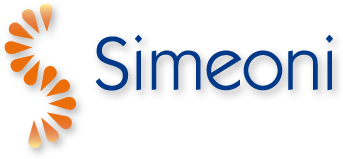The Super Guarantee timing trap for employers. This and More …
06th Dec 2019Super guarantee opt-out for employees with multiple employers
Employees with multiple employers can now opt-out of superannuation guarantee from all but one employer.
Employees with multiple employers can now opt-out of superannuation guarantee from all but one employer.
Employers are required to pay 9.5% superannuation guarantee for all eligible employees. But what happens if you are an employee with multiple employers? Until recently, these compulsory payments meant some employees risked unintentionally breaching their concessional contributions caps. New laws however provide a potential solution.
Legislation that passed Parliament late last month allows an employee to apply to the Commissioner of Taxation for an employer shortfall exemption certificate to opt-out of the SG system for specific employers. This certificate prevents their employer from having a superannuation guarantee shortfall if they do not make superannuation contributions for the period covered by the certificate.
It’s important to note that the exemption certificate does not require the employer to stop paying SG, it merely protects them if they fail to make SG payments. The employer may choose to continue paying SG – either because they could not reach an agreement with the employee on their total remuneration package once SG is removed, or the administration required to exclude an individual employee is too onerous.
The Commissioner will only issue an employer shortfall exemption certificate where:
• The taxpayer is likely to exceed their concessional contributions cap for the financial year (just because you have multiple employers does not mean you can opt out of SG), and
• At least one employer is paying SG for the employee.
The Commissioner might deny the certificate if it’s not appropriate, the application would significantly reduce the amount of SG by an amount larger than necessary (for example, opting out of SG from the largest of the multiple employers), or where there is a contrived arrangement to take advantage of the new rules.
The due date for the employer shortfall exemption certificate is 60 days before the first day of the quarter to which the application relates.
Before applying for a certificate, it’s important to understand the impact of opting out of SG. You will need to negotiate your total remuneration package with your employer and the impact of this on your tax position, understand the tax outcomes if you did nothing and exceed your contributions cap, and the impact on your retirement savings over time.
The Super Guarantee timing trap for employers
How employers are being caught out by the timing of superannuation guarantee payments.
Employers can generally only claim a deduction for superannuation contributions in the income year in which the contribution is made. Super contributions are made when the payments are received by the trustee of a complying superannuation fund.
It’s not uncommon for employers to be caught out by timing problems, many in the belief that the contribution has been made at the point the payment is made rather than when it is credited to the superannuation fund provider’s account. Many forms of electronic transfer however are not guaranteed to be automatic or next day. BPay for example may take up to 2 days, a delay that is often not factored in.
A new practice statement from the ATO highlights the problem created by the use of clearing houses.
There is a specific element of the law that enables payments made to the Government’s Small Business Superannuation Clearing House (SBSCH) to be accepted as contributions when the clearing house receives them, rather than when the trustee of the superannuation fund has received the contribution. The SBSCH is only available to small businesses with 19 or fewer employees, or with an annual aggregated turnover of less than $10 million.
Private clearing houses are treated differently and as such, employers need to allow sufficient time for their superannuation contributions to be received, processed and paid by the clearing house to the superannuation fund, before their SG obligation is discharged.
Take the example of an employer who brings forward superannuation contributions before 30 June to be able to claim the tax deduction in that year. If a private clearing house was used, and time was not allowed for the clearing house to process the payment, and as a result the payment was not received by the trustees before 30 June, then the deduction cannot be claimed until the next financial year.
Bushfire relief from ATO obligations
The ATO has provided relief from lodgement compliance and payment obligations for those impacted by the bushfires. An automatic two month deferral for activity statements lodgements and payments due has been provided to those in affected postcodes.
Taxpayers can also call the ATO directly to request further assistance, such as requesting extra time to manage tax debt or lodgements, help finding lost documentation such as Tax File Numbers, reconstructing tax documentation, fast tracking refunds, interest free periods, and remittance of penalties or interest charged during the crisis.
Paul Simeoni & Team


